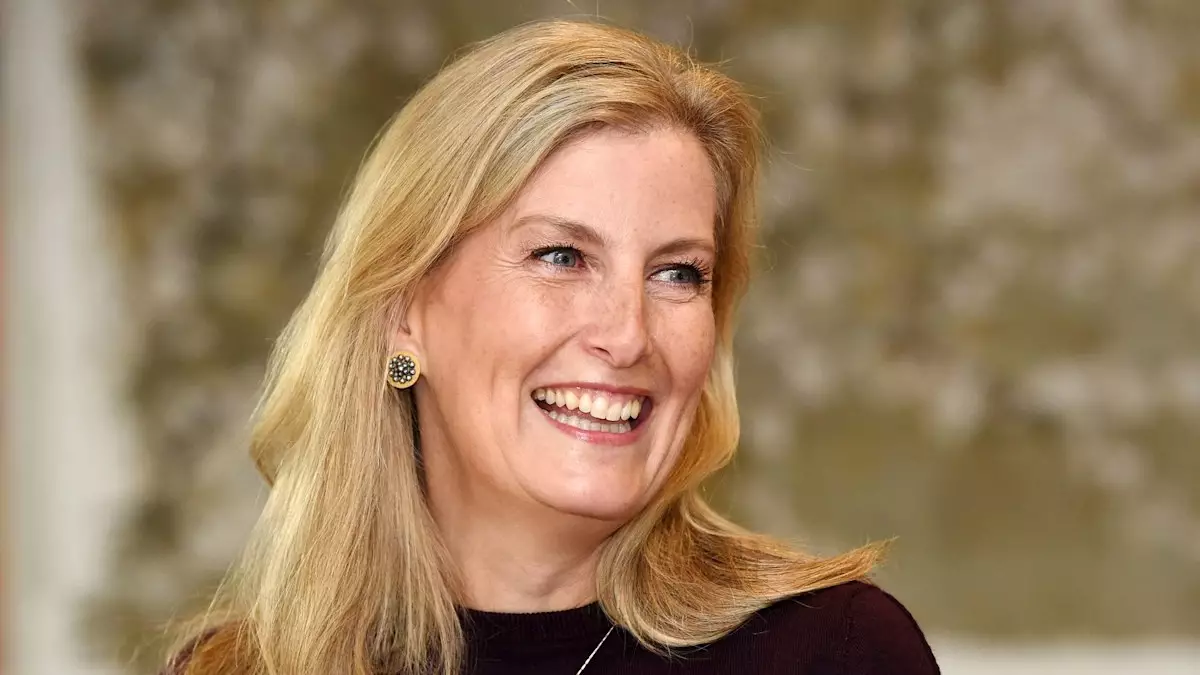In recent years, visibility and representation for individuals with disabilities have gained immense attention and advocacy. The recent appearance of The Duchess of Edinburgh on BBC’s The One Show not only showcased a royal backing for a noble cause but also highlighted the persistent issues surrounding disability acceptance in society. During a segment dedicated to BBC Children in Need, the Duchess made an inspirational visit to 21-year-old Emily, a courageous young woman living with cerebral palsy. This heartwarming encounter emphasizes dual themes: the significance of support systems for disabled individuals and the ongoing societal challenges they face.
The segment, part of The One Show’s fundraiser dubbed The Challenge Squad, portrayed the emotional journey of Emily, who valiantly undertook a lengthy charity walk in Windsor. The pre-recorded clip captured not just the physical exertion but the emotional resilience involved as Emily navigated the daunting Long Walk. The studio’s host, Roman Kemp, set the tone by acknowledging Emily’s exhaustion while hinting at the surprise royal support she was about to receive, indicating the event’s celebratory nature. The presence of the Duchess served as a significant morale booster, illustrating how simple gestures can uplift the spirits of those facing extraordinary challenges.
When The Duchess of Edinburgh greeted Emily, her warm words of encouragement resonated deeply. Telling Emily, “You’re doing amazingly well,” the Duchess acknowledged more than just the physical journey; she recognized the emotional turmoil that often accompanies such challenges. The Duchess later articulated the arduous nature of the walk, validating Emily’s experience; this exchange demonstrated an understanding that empathy and recognition are essential in lifting the spirits of those with disabilities.
Emily’s candid reflections further enriched the narrative. As she shared her struggles regarding societal acceptance, the conversation transitioned from mere encouragement to a deeper dialogue on the perception of disabilities. Understanding and confronting these realities is vital for both individuals with disabilities and the wider community. Emily’s observation that she had to integrate into a society that does not always accept individuals like her challenges us to reflect on our attitudes toward disability and the necessity for change.
The digital world has transformed how we react to such stories. Following the event, social media was abuzz with positive sentiments and commendations for both Emily and the Duchess. Comments ranged from simple congratulations to affirmations of the Duchess’s kindness, showcasing the communal appreciation for moments that uplift underrepresented narratives. The visibility provided by BBC programs helps shine a spotlight on important discussions while advocating for changes that benefit disabled individuals.
This interaction serves as a reminder of the power held by public figures, especially royalty, in influencing societal perceptions. The Duchess of Edinburgh’s engagement in this charity effort not only underscored the importance of bringing attention to disability issues but also served to normalize conversations surrounding them.
Amid this heartwarming episode, it is also notable that The Duchess has been stepping into her royal role with increasing confidence. Having recently led the Armistice Service solo for the first time, her growing visibility in public events is indicative of a broader commitment to her responsibilities. Each public engagement becomes an opportunity to advocate for meaningful change, uniting the royal family’s legacy with contemporary social issues, thereby cementing their relevance in today’s dialogues.
The encounter between The Duchess of Edinburgh and Emily on The One Show serves as an inspiring narrative, encapsulating hope and the pressing need for empathy within society. It is a demonstration of how compassion and visibility can foster understanding, encourage participation, and ultimately, advocate for an inclusive future. As we continue to navigate conversations about disability, it is this kind of engagement that paves the way for progress—one inspiring moment at a time.

